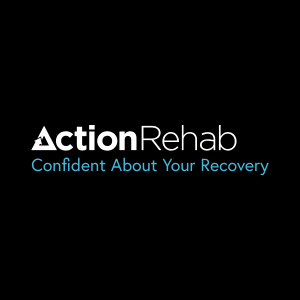
Alcohol addiction is a worldwide problem that affects millions of people each year and is a condition which can be difficult to overcome. Alcohol addiction is often characterised by compulsive behaviour, which can lead to problems with a drinker’s physical and mental health.
This type of addiction may cause a range of other problems, such as financial difficulties, troubles at work, strains on your relationship and personal neglect which can take significant time to completely overcome alcohol addiction. But how long does it take to overcome alcohol addiction?
To understand how long it takes to overcome an alcohol addiction, it is important to understand addiction itself and the treatments which are required to recover it.
Alcohol addiction recovery and the time it takes to overcome alcoholism varies for everyone depending on the severity of their addiction, age, health and addiction history. This means that alcohol treatment programmes may take longer for some individuals than others.
What is Alcohol Addiction?
When alcohol addiction is in its early phase or first developing, it may be difficult to detect a problem with your drinking or substance use. It may be that you are drinking a little more alcohol than usual, or you feel the need to regularly drink socially or at home. Your drinking habits may also be a response to stress or an event that is ongoing in your life.
Once the line between casual drinking and problem drinking is crossed, and your behaviour, shame, or fear of drinking are impacting your daily life, that is when alcohol addiction must be dealt with appropriately and it may take a number of weeks or months to overcome alcohol addiction.
A variety of things can cause an alcohol addiction to develop, from a traumatic event or stress to mental health. Mental health conditions such as depression, anxiety, bipolar, personality disorder and many more conditions can be the stepping stone to addiction and this makes it much harder to overcome and may influence the time it takes to recover from alcohol addiction.
The signs and symptoms of alcohol addiction must be known as early on as possible to treat it, and the sooner you start alcohol detox to treat your substance abuse, the less time it will take to overcome addiction. When addiction is not treated, it can worsen quickly, leading to a devastating decline which will likely make the recovery process longer, as well as cause serious long-term health problems. These can include liver damage, overdose, and a multitude of psychological issues.
Some of the symptoms of alcohol addiction to be aware of are:
- Being unable to limit the amount of alcohol you drink
- Trying to cut down alcohol but being unsuccessful
- Finding you are dealing with difficult hangovers and an inability to recover quickly
- Craving drink in many situations, and times of the day
- Relationships are strained or suffering
- Work and finance may be affected, arguments and unable to do your job correctly
- Anxiety and depression
- Moodiness or aggressiveness
A Timeline: The Stages of Alcohol Recovery
There are three main stages of alcohol recovery which contribute to the amount of time it takes to overcome alcohol addiction. Once you have decided to join a rehab programme, you will be cared for by a professional multidisciplinary team in a luxury setting. These three key phases below, work in conjunction with one another to give you a pathway to healing, including life skills and tools to use once you have recovered from addiction.
Alcohol rehab programmes which treat addiction typically last for 28 days, which involves all of the treatments required to overcome alcohol addiction. Although the alcohol withdrawal timeline is different for everybody, 28 days of rehabilitation is the recommended treatment length for alcohol recovery.
See below our alcohol withdrawal timeline for a rough guide of how long it takes to overcome alcohol addiction:
Phase One: Alcohol Detox
Alcohol detox is a 5-7 day process that involves the removal of alcohol from the body in a safe environment. Detox is undertaken in a medical environment, and any alcohol withdrawal symptoms are well managed with prescription medication and medical support. During this detox phase, you will be in a detox wing for the first few days of rehab treatment, and each day you will be slowly weaned from the alcohol.
The detox period is usually 5-7 days long, however the time it takes to complete detox varies depending on the severity of the alcohol addiction. For people who have a long addiction history of multiple years, detox will likely produce more severe withdrawal symptoms and take longer to complete. However, for others detox may only take 3-5 days to complete and the withdrawal symptoms are not as dangerous.
Phase Two: Psychotherapies and Rehabilitation
Following the alcohol detox period, a series of therapy and counselling sessions will be provided during an alcohol rehab programme for around 2-3 weeks to encourage recovery. This will be the biggest chunk of your rehabilitation programme, and often lasts for up to 28 days (sometimes more). Dealing with and understanding any mental health conditions, such as anxiety or depression and more about your alcohol abuse will help you overcome alcohol addiction and relapse in the future.
By completing a short period of addiction treatments in rehab, you can learn more about your own behaviours, understand your triggers and learn to deal with these if and when they arise in the future.
Psychotherapies provided in rehab include CBT (Cognitive Behavioural Therapy) which will allow you to free yourself from limiting beliefs, change your thought patterns and shape new behaviours, which will allow you to prevent future outbreaks or breakdowns. Understanding your new environment and setting addiction recovery goals, including mindfulness and a healthy lifestyle all work together to create a winning formula to help you overcome alcohol addiction.
Phase Three: Maintenance
Overcoming alcohol addiction takes time, which is why we recommend attending rehab for 28 day programmes or more. Following your stages of recovery, it can be difficult to return home and continue alcohol addiction recovery at home for the months after rehab treatment has ended. This is why private rehab programmes offer a relapse prevention plan and aftercare plan for 1 year to continue recovery.
Monitored and instigated by our professional team, you will have long-term access to support, updated information, support groups, counselling sessions and more to maintain sobriety.
Factors That Affect Alcohol Addiction Recovery Time
Every person facing addiction has come from a different walk of life, has different physical and mental needs, and may be of any age, gender or background therefore, there is no one-size-fits-all treatment programme or time it takes to overcome alcohol addiction. Short recovery programmes are often why so many public sectors or local addiction treatment programmes fail in the first year.
To tackle any addiction issues, you must have a personalised rehab plan that can be achieved through private alcohol rehab. Certain factors may affect the speed of your recovery from alcohol addiction, such as the severity of your addiction, the length of alcohol use, any co-occurring disorders, your individual lifestyle, and your desire to maintain sobriety.
The time it takes to overcome alcohol addiction varies greatly – many programmes last 28 days in rehab, and detox takes 5-10 days.
Following a programme at a private rehab centre, you will gain access to something known as an aftercare plan. This relapse prevention plan will ensure that you are given dedicated amounts of time for follow-up chats, treatment continuation and general support. Each stage of your recovery will be monitored and discussed and re-evaluated if needed.
How Long Do Alcohol Withdrawal Symptoms Last?
The timeline of alcohol withdrawal symptoms varies massively depending on the severity of your addiction. The most severe withdrawal symptoms are experienced within the first 24 hours of detox from the substance but can last for up to 7 to 10 days.
Withdrawal symptoms can include nausea, insomnia, cravings, loss of appetite, diarrhoea, headaches, mood swings and more.
For any questions about how long alcohol withdrawal symptoms last for, phone a member of our admission team on 0151 268 6992.
How Long Does Alcohol Rehab Take?
Alcohol rehab and recovery can look very different depending on each patient. The severity and longevity of the addiction will determine how long you will need to spend in rehab, including any potential treatment routes that are best suited to you. It is so important to reach out for professional help when you are starting this recovery journey, and medically assisted alcohol detox is the recommended route to take. Anyone who undertakes detox alone could end up with a serious medical emergency.
The standard time for a rehab programme is 28 days, but this may vary and may not be enough time to overcome alcohol addiction. The best thing to do is to speak to our professional friendly team to gain a better insight into your personal journey and the way in which we can help you. It is important to note that these rehab programmes are often hugely successful when combined with a post-rehab support plan which continues for months after treatment.
Maintaining Sobriety From Alcohol Addiction
The biggest challenge to overcome after leaving rehab is the fear of not being able to continue with your psychological tools alone. Firstly, you will never be alone in this state, but physically, there will be times when you must go back to the life that you have left. The challenges include feeling lonely, or unstable.
With the help of your aftercare plan, you can mitigate the risk of relapse. However, there are other key things to do to continue sobriety after rehab:
- Start journaling – make a diary of how you feel and see if any other symptoms tie into specific elements of your life
- Start eating well – a rich nutritious diet is vital for recovery
- Sleep well, and ensure you have a good sleep routine
- Exercise – going to a gym or working out from home will release important endorphins
- Reach out to people and be open about your emotions
- Keep all temptations out of sight and remove them entirely from your life
No matter how long it takes you to recover from addiction, we can help you. To get alcohol treatment today, please feel free to contact us to learn more. We can offer advice and guidance, as well as advise you how long it may take to recover from alcohol addiction depending on your personal circumstances. Phone us at 01923 369 161 or Text HELP To 83222 for more info.
Posted on Tuesday, April 25th, 2023 at 10:05 am in Addiction, Latest News.










 Call Us
Call Us Contact Us
Contact Us